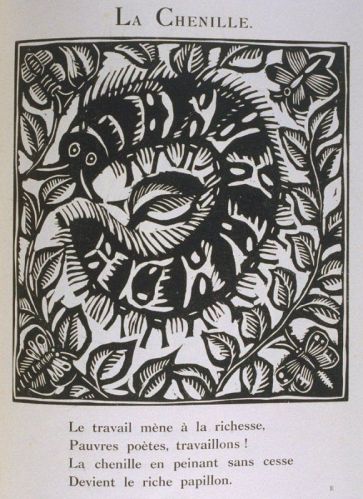This is a slightly more up-to-date version of the old outils utiles (2010). It was a version of my original 2003 curated collection of resources, and revised in turn through 2012-23: FREN 101 (ARCHIVE, 2013-18), FREN 102 (ARCHIVE, 2013-18), FREN 101 & 102 (2018-19, up to the March-April 2020 COVID-19 onlinising “pivot”), and UBC Canvas course sites (2020-24, access restricted to UBC Vancouver students taking these courses). Thanks to JB, a student from summer 2023’s FREN 202 who asked for a version that’s available and accessible in the longer term: long live free open knowledge, mutual aid, and sustainability!
(more…)teaching and learning
31 August is Ken Campbell Day: diddling and doodling, the radical education of seekers
 It is time for the annual pilgrimage.
It is time for the annual pilgrimage.
(Our Ken is not to be confused with the homonymous Canadian politician, Canadian fundamentalist Baptist evangelist, Canadian swimmer, assorted other sportsmen, a plastic doll, etc.)
This post is a collage accumulating in annual accretion: Campbellian education in action, learning-centred learning, every year another Station continues the post’s rambling Way of Sorrows.
(more…)
returning
on midterm breaks
“Being Human: Intellectual Life, Balance, Being In Time And Space” (FHIS graduate workshop on mental health and academic productivity)
30 September: National Day for Truth and Reconciliation
Here is something that I wrote last year for its 30th of September, in what might superficially seem unconnected: a course called “Introduction to the Literatures and Cultures of the Romance World I: Medieval to Early Modern.” But all things are connected, even if you have to do some thinking work to get there. And that work is always worth doing and a good thing. Especially today.
This post is about poetry and listening.
(more…)31 August is Ken Campbell Day: diddling and doodling, seekers, radical education as seeking learning outcomes, and punk
And so the great wheel turns and it is time to celebrate St Ken’s Day again.
Time for the annual pilgrimage that is the start of this Happy New Year for people in the formal cycle of learning, from crèche and kindergarten to university; and for people outside it as learning, a life of learning, and a meaningful life are for all.
For all who are or become “people” because they are #passionately #innovatively #transformatively #sustainably #engaged in the great #creative #ValueInvestment #community that is life itself. Your own life right here right now, and others around and above and beyond and below it, and the after and the before, and whatever and whoever is to the sides and out of sight. All the water in which that great wheel turns: a wild free flow with unpredictable currents.
May our rivers never run dry.
utopian dreaming (1): equity, diversity, inclusion
While sorting through some old files, I came across something that I wrote in November 2020 that seems relevant and worth sharing. I’ve edited it very slightly. It’s a prologue of sorts to the next posts, on European identity (not in the icky sense that immediately comes to some minds) and haunting, ghosts and glowing.
They will take a little more time: first drafts from January have changed shape, most notably, as you might imagine, in the last few days. I thought that I’d throw them away; what was the point, or the point of anything. Anything that I might write or be thinking was trivial. Fellow humans suffer unimaginably, their world changing day to day, uncertain if they would still be alive tomorrow or have a home to wake up in. In everyday horror. Under daily increasing threat and encroaching invasion. I can try to imagine, and I have a moral obligation as a fellow person to imagine. But I also have an obligation to respect others’ uniqueness, difference, and unimaginability; for humility, to avoid hubris; and to recognise my limits, the limits of imagination, that which makes and keeps it human. We, too, wherever we are, live in uncertainty: here in Vancouver, as in most of the world, we’re in striking distance of an intercontinental missile, we live next to nuclear powers, and some of our neighbours are politically unstable.
But tomorrow could be death. So: write. Anything. Good, bad, indifferent; personal, embarrassing, absurd; useless, useful, disregarding and regardless of anyone else’s use-value it might have some human value in its very triviality. Write to live. In solidarity with Ukraine and Ukrainians. In hope for peace on earth, goodwill to all, life, and love.
(more…)sabbatical project (winter-spring 2022)
= consent in and around and through medieval Occitan poetry.
(more…)on work, overwork, folly, and resistance
Last year I worked every weekend from mid-March to the end of September.
(more…)31 August is Ken Campbell Day: diddling and doodling, seekers, radical education as seeking learning outcomes, and punk

From 2020: time for the annual pilgrimage …
(not to be confused with the homonymous Canadian politician, Canadian fundamentalist Baptist evangelist, Canadian swimmer, assorted other sportsmen, etc.)
It is time for the annual pilgrimage.
As is traditional, this post is a “sticky” one for a whole academic term, all the way to its end and the end of the calendar year. It contains various kinds of “stickiness” played out in four Acts:
I. revisiting 2017
II. 2018 and III. Campbellian education in action
IV. 2019 and learning outcomes.
Like previous pilgrimages, this year’s one adds more Stations to its rambling Way of Sorrows.
2020: “IT’S LIKE PUNK NEVER HAPPENED”
This year’s contextual frame: online teaching in pandemic times. (more…)
reading about teaching online: a collection of links (6)
Here’s to hoping that this is the last such List Of All Of The Saved Links: (1), (2), (3, (4), and (5).
Our Happy Academic New Year starts the week of 7 September, our first full day of classes will be on Wednesday the 8th, and this week is the traditional grande finale of course preparation, intensive and fast and furious. There will of course be last-minute changes; and then changes in the first week, and the second week, in response to practicalities and circumstances and the unforeseen and the unforeseeable. That happens every year. The known unknowns for starters. I worry if there are no looming potential disasters (there are, of course, so I’m fairly cool and comfortable). I really worry, though, if there have been no mishaps by the end of the first week of term. Like many of you—colleagues, fellow teachers and other lifelong learners, students, future students—I’ve been having Beginning Of Term Dreams. They’ve been pretty mundane so far, nothing worth reporting, but if their weirdness improves I should of course share.
Meanwhile, here are links saved on Twitter; as with the previous post, collected over the last month or so and copy-pasted here newest first. Some are threads, some include embedded threads. There’s applied practice, historical examples of virtual education from before the age of the online, a lot of Jesse Stommel, a fair dose of critical pedagogy and some philosophy of education, and the occasional grumpy and/or goofy and gooey pedantic rant by yours truly. There are also some useful links to UBC CTLT online stuff (notes from their summer workshops are via a Wiki) and UBC Arts ISIT (most of whose summer workshops offer recordings and slides online).
May contain politics and sarcasm. Plus some bonus Motivational Inspirational stuff, metaphors, and medieval allegory.
reading about teaching online: a collection of links (5)
welcome to TWO new blogs: “The Dendromorphoses” and “Academic Zoomscaping”

Thanks to living in, and with, COVID-19 times I’ve made two new things. The first came to be out of spending more time than usual wandering in our local woods and taking photos there. The second started as a collection of amusing pictures collected online. (more…)
reading about teaching online: a collection of links (4)
Time for Twitter!
This is the last in a set of four posts transcribing Notes and Bookmarks collected along the way, of readings reread. It’s also part of a larger series of posts from March 2020 onwards, about teaching and resources for doing so, online during COVID-19.
reading about teaching online: a collection of links (3)
SOME SLIGHTLY SUBJECT-SPECIFIC ONLINE RESOURCES
reading about teaching online: a collection of links (2)
UBC RESOURCES
reading about teaching online: a collection of links (1)
against surveillance exams
(work in progress: old notes, summer FREN 101 and 102 online course design)

“Le secret de l’histoire naturelle contenant les merveilles et choses mémorables du monde”: Bibliothèque nationale de France MS fr. 22971, f. 60v. (c. 1485 CE)
term-long, weekly, and short assignments for university French (translating to other languages too) for #COVIDcampus #remoteteaching #remotelearning
A sample online university language course setup for summer #COVIDcampus #remoteteaching #remotelearning
#MayDay, solidarity, and mutual aid
two very-short-story-sprouts / #COVIDcampus #remoteteaching #remotelearning
weekend whimsy: a very short story
#COVIDcampus #remoteteaching #remotelearning – français débutant et intermédiaire (du DELF A1 au B1) : mini-festival de cinéma français d’il y a un siècle #open et gratuit
CO-COVID-19 COLLEGIAL CAMPUS CO-OP™️ #academictwitter #COVIDcampus #remotelearning: sample simple set-up using Canvas with WordPress as backup
#academictwitter #COVIDcampus #remotelearning : université + français L2 pour débutants
(Un petit guide rapide, copié et collé de ce que je fais avec l’équipe de deux cours de français que j’enseigne et coordonne : on est douze, dix-sept sections / classes, dans les 500+ étudiants. Et au Canada, où les outils sont sujets à la Loi sur l’accès à l’information et la protection de la vie privée. Peut-être utile pour d’autres dans des situations analogues dans d’autres universités de taille pareille, on est dans les 50.000 étudiants.)
#academictwitter #COVID19 resources for online (anthropo-)synchronous teaching
(Updated ten days later to change the title, a few days into actual onlinised teaching that is neither synchronous nor (possibly even) asynchronous in earlier, now anachronistic, senses of the words: we’re now into a different sense of chronology, a changed being-in-space-and-time, asynchrony in real time: maintaining hoping for anthroposynchrony.)
This is a post where I’ll list what has seemed to me to be helpful guidance from humanities colleagues with experience and expertise in teaching online.
Drafting started: 2020-03-06
First published: 2020-03-09
Last updated: 2020-03-13 20:35

(continue reading … 👉 )
Animal reading: teaching and learning about animal thinking

This essay is based on a talk given in January 2020 at the Modern Language Association Convention in Seattle, whose Presidential Theme was “Being Human.” (more…)
On animal reading and being humanimal

Teaching is a curious business


